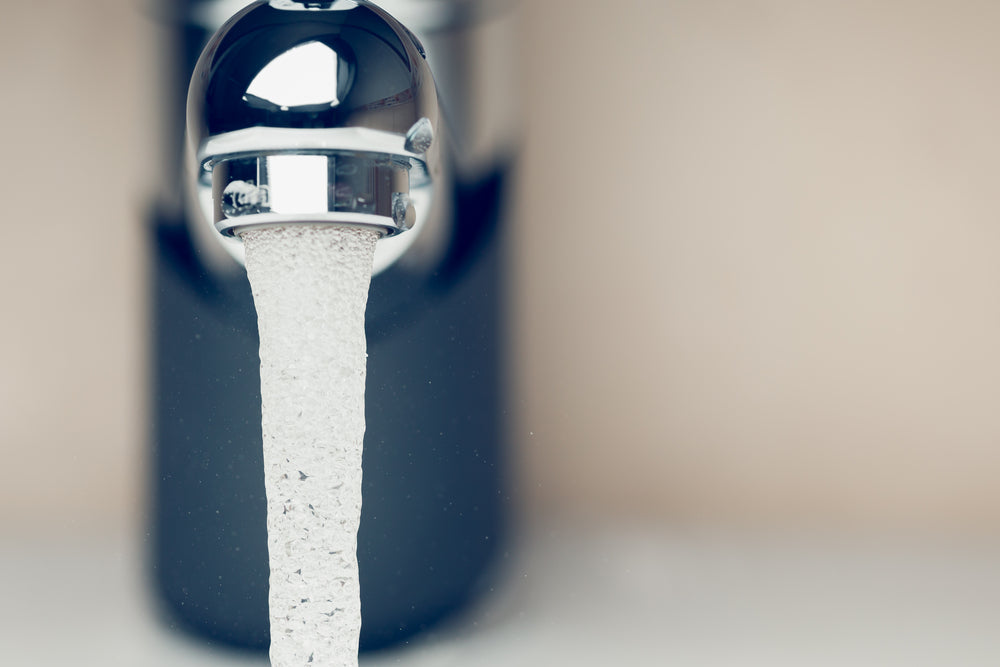
Mar 20 , 2018
What Kind of Water Filter Best Removes Fluoride?
Fluoride has been added to municipal drinking water across North America since the 1940s. It began as a way to control tooth decay among residents. Today, fluoride continues to be added for the same reason.
However, many other countries in the world have rejected fluoridation, and several studies say there are a number of adverse health effects of fluoride. Many believe fluoridation in water leads to skeletal and dental fluorosis, causing discoloration of the teeth and, potentially, a harmful bone disease.
While some governments are now deciding de-fluoridate due to public pressure around the controversial subject, for some the process just wont come quick enough. Were not here to conclude whether fluoridation is right or wrong. The fact is, many individuals and families are deciding to de-fluoridate on their own.
There are several options on the market for water filtration systems that can remove fluoride, along with other potentially harmful contaminants. If you are looking to remove fluoride from your drinking water, read on for the best water filter methods and products available to do so.
Reverse Osmosis
Reverse osmosis uses a membrane and usually several carbon block filters to de-fluoridate the water. The filtration systems are connected directly to your plumbing system and are typically installed under the kitchen sink. They can include anywhere from four to ten stages of filtration to remove the fluoride.
Reverse osmosis is a very effective way to reduce fluoride by about 97%, depending on the system.
We have several reverse osmosis systems and parts available. One solution is the Everpure ROM II Reverse Osmosis. It not only removes fluoride, but also lead, arsenic, and nitrites. As a bonus, it minimizes scale build-up and fits nicely underneath a sink. This system is recommended for office use.
Another reverse osmosis system that works very well is the Whirlpool Reverse Osmosis System. It has a fairly simple installation and filter changing process. It significantly reduces the fluoride content in water, sediments, chlorine, and other contaminants.
Whats great about these types of systems is that, due to their compact size, you can remove them and take them with you if you move.

Water Pitcher Filter
Water pitcher filters are commonplace in homes that dont have installed filtration systems or in those homes where families wish to take an extra step in filtering their drinking water.
Common pitchers, such as the Brita filter, use activated carbon to filter the water. While this does remove several potentially harmful contaminants and can provide a fresh taste for water, this type of system, unfortunately, does not remove fluoride.
However, one system is discussed as being very effective at removing most fluoride from water. The AquaGear water pitcher system consistently makes the top lists of recommended pitcher filters that do the job.
It claims to remove 2,000% more contaminants than the Brita, while keeping healthy minerals in the water such as calcium and magnesium.
So, if youre looking for a quick fix without having to install a new appliance to your plumbing system, one of these water pitchers may be a good choice for you.
Deionization
Deionization water filter systems will also remove over 90% of the fluoride in your drinking water.
Deionization removes all ionized salt and minerals from your drinking water through ion exchange. To ensure fluoride is removed, the deionization system must include an ion-exchange resin. You can purchase deionization systems that dont, so make sure you check the specifications before you buy.
To add a deionization system to your home, you can simply add cartridges to your current water filtration system.
Water Filters Fast has a few deionization filters available that can be added to some of the most common water filtration housings available, such as the Aries reduction fluoride cartridge.
The Aries system uses ion exchange resin and other absorbents to remove not only fluoride but many other contaminants from a households water supply.
In addition to removing fluoride, it will soften hard water, remove tannins, nitrates, arsenic, heavy metals, and more. It fits most system housings.
Water Distiller
Another option to remove fluoride from a households drinking water is to distill the water. A distiller essentially boils the water, collecting the steam, which then becomes the drinking water, sans the contaminants, including fluoride.
Distillation systems can vary greatly in size, but many are available that sit on your countertop. Its recommended to go with a glass water collector to improve the distillation process, but the market offers many distillation products, depending on your needs.
Final Thoughts
There are many ways to reduce or eliminate fluoride in your drinking water. If you have questions remaining, you can always contact us to help you decide on the best system for you and your family.


